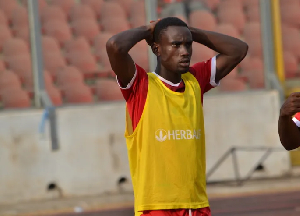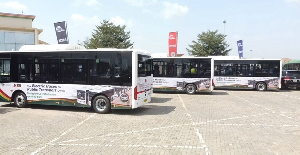Six months after the last presidential election in Ghana, the country’s former leader, Jerry Rawlings, has credited the success of the poll to President Umaru Musa Yar’Adua’s persistent pressure on former president John Kufuor of Ghana to allow the electoral commission declare the authentic winner.
Rawlings in an interview published in a Weekly newspaper, THE GHANAIAN DEMOCRAT, of July 8 -15, said:
“By the way, we claim to be the ‘Gateway’ but don’t be surprised if Nigeria ends up as the destination, as they claim. It is important to keep in mind that it was partly Nigeria’s intervention under President Yar’Adua’s leadership that pulled the plug on Kuffuor and Nana Addo’s intended adventure; not the Western powers, some of whom urged on the NPP’s electoral fraud and theft in 2004. But for General Sarki Muktar (Yar‘Adua’s National Security Adviser)’s timely visit, we may very well be mourning and licking our wounds by now”.
The last December’s election in the country was running into some hitches after a clear winner did not emerge between the candidate of the then ruling party, Nana Addo and the opposition party’s candidate, Prof. John Atta-Mills after the first ballot. This warranted a run-off that saw the latter emerging victorious. THISDAY checks at the diplomatic circle revealed at the weekend that after the first ballot and there were fears that crisis was looming with the two leading parties accusing each other of electoral malpractices, Yar’Adua who feared that it would be catastrophic if Ghana’s democratic process was disrupted in any manner immediately commenced diplomatic moves to stem the tide.
A top diplomat, who was involved in the negotiations said the world may never realise the “intense but quiet diplomacy” adopted by Yar’Adua to ensure the wishes of Ghanaian electorate were respected.
The source further said: “Even though Yar’Adua was neutral, he initially had sympathy for Nana Addo, John Kufour’s candidate for the election but after the first ballot, which Addo won narrowly, Yar’Adua, who had sent Muktah as a roving special emissary, got reports that the first ballot was marred by malpractices. “He also got reports that Kuffuor’s candidate, Addo, notwithstanding his earlier marginal lead, would find it difficult to win the run-off without manipulation by Kuffuor, who was determined to install his successor,” the source said. Speaking on the stunt Yar’Adua pulled on Kuffuor with whom he maintains a strong personal relationship, the source said: “The President invited Kufur to Abuja where he pleaded with him to allow a free and fair process so that he would not leave the country he had governed so well in crisis.”
THISDAY further gathered that having sensed the “genuine” intermediary role of the Nigerian leader in the poll, Ghana’s opposition community jumped into the boat to urge him on.
“When the Ghanaian opposition led by Rawlings (whose former deputy, Atta-Mills was the candidate) saw the genuine intermediary role Yar’Adua was playing, they reached out to him on the eve of the election run-off when it had become almost clear that Atta-Mills would win and there were plans to rig the election for Addo since the polls were very close.
“It was at this point Yar’Adua again sent the NSA again to Kuffuor, who gave his word that he would not tamper with the polls. And he kept his word,” the source added.
In December 2008, 8.2 million Ghanaians went to the polls to elect a president and members of parliament. The four major political parties contested the elections vigorously through massive grassroots efforts and voter registration campaigns. The candidate of the National Democratic Congress, Professor John Atta-Mills, defeated former President Kuffuor’s candidate, Addo, by a razor thin margin in a run-off election. Kuffuor not only conceded defeat gracefully, he also cordially congratulated the president-elect and attended the swearing-in ceremony. Ghanaian voters also threw out of office well-known incumbent parliamentarians from the four major parties who had taken them for granted. In the end, all of the opposition parties accepted the results of the election as determined by Ghana’s Electorol commision

















